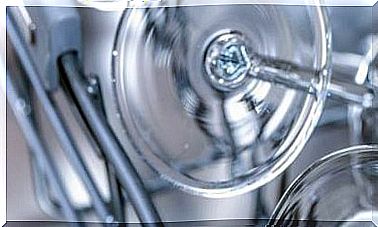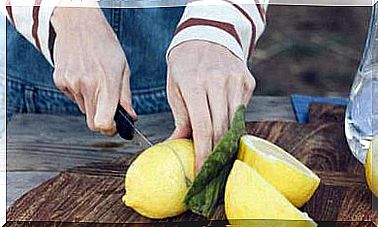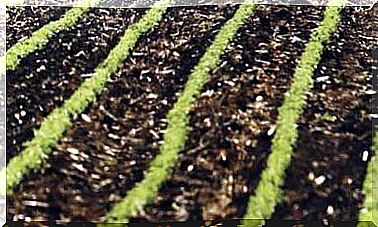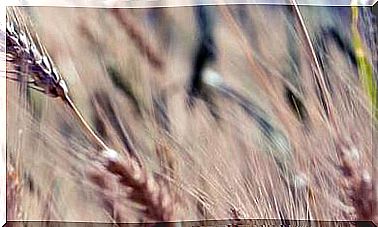9 Keys For You To Grow Your Sprouts At Home
Sprouts store all the energy and nutrients that the plant needs to grow, with multiplied vitamins. In addition, they are easy to digest.
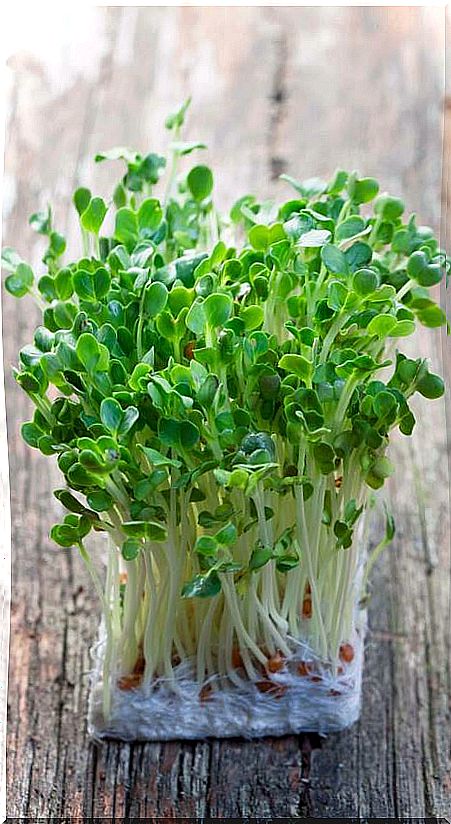
A current diet problem can be the loss of vitamins due to food handling. Storing, peeling, cutting, grating, cooking … all this exposes the food to reactions that reduce the quality of its nutrients. The diet is devitalized when raw food is scarce.
The germinated seeds allow to counteract this tendency, since their richness in nutrients increases until the moment they are ingested.
The use of germinated seeds in food is documented five thousand years ago in China. They were also used in Babylon and the Essenes made sprouted wheat bread with them. The Roman legions consumed them in the field. In the West, however, its consumption is still quite a minority.
Consuming sprouts means including fresh and healthy food in the diet. Seeds such as wheat, barley, mung beans, alfalfa and many others can be germinated, which increases their nutrients and makes them more digestive.
Including sprouts in the diet helps health and the planet, since they can be “grown” at home simply and cheaply, with organic seeds, free of pesticides and fertilizers.
What are the nutritional properties of sprouts?
Sprouted seeds are foods very rich in vitamins and minerals. When the seeds germinate, their nutritional contribution increases dramatically.
They also provide carbohydrates, proteins and chlorophyll, nutrients that the body needs for its proper functioning and development.
In addition, with the advantage that these nutrients are easier to digest in sprouts .
Why do sprouts have more vitamins?
During germination, the proportion of B vitamins increases, and if the grains have been exposed to light, chlorophyll is created, which acts as an antianemic, antioxidant and detoxifier.
Vitamin C, which is not present in dried seeds, begins to form as soon as they hydrate and germinate.
For example, in wheat, in five days, vitamin B2 triples, B6 doubles and B1 increases 20%.
The result of germination is a food that strengthens the immune system, purifies the body and prevents aging.
Why are sprouted foods easier to digest?
Germination converts starch into much simpler sugars, which is why it can be considered an alternative to cooking cereals and legumes, with the advantage that the food is not spoiled with it, on the contrary: it is alive even when it reaches the mouth . It also increases enzymes.
Even legumes can be taken simply sprouted, although people with a delicate stomach are recommended to blanch them beforehand for a minute or two.
What is the best way to take sprouts?
The best way to take advantage of the nutritional value of sprouts is to eat them raw, in salads, sandwiches or smoothies.
They can also be included in stir-fries, tortillas, creams and other cooked dishes, incorporating them at the last minute to protect their nutrients.
Can they be germinated at home?
Yes, even if you don’t have a germinator.
- In a container the seeds are covered with water (3 or 4 times its volume).
- They are left for 12 hours in the dark at 15-20 ºC.
- The water is removed, the bottle is covered with gauze and rinsed 2 or 3 times a day until the sprouts appear.
- Once the seeds have sprouted, they are exposed to light so that chlorophyll is formed.
What is the most complete sprout?
Alfalfa is the most nutritious. In fact, it is one of the most complete foods, even if it is eaten in small quantities: it is rich in vitamins (especially C), good quality proteins (it contains the most important amino acids) and fiber. It also provides minerals and lots of chlorophyll if exposed to light.
What is the mung bean?
Mung beans are a very popular sprout, rich in protein and easy to digest. It is recommended in cases of osteoporosis, osteoarthritis and anemia. In addition, it strengthens the nervous system.
Although mung beans are often called “green soybeans,” it has nothing to do with soybeans. The name can be misleading, but they are two different plants.
How long are they kept and where?
Once germinated, the seeds should be kept in the fridge very dry, inside a jar or plastic bag.
Thus, they last up to two weeks. If they are kept longer, the sprouts become rancid and could then be toxic.
That is why it is recommended to grow sprouts frequently.
What seeds can be germinated?
Almost all.
The most common sprouts are those obtained from cereals and legumes, since they are better assimilated in this way; and those of watercress, radish or mustard, for their spicy flavor.
On the other hand, nightshade seeds (tomato, pepper, eggplant, potato …) have toxic elements and are not suitable for germination.
These are the most common germinated seeds, how to germinate them and their benefits:
Alfalfa
- Hours soak: 6
- Germination days: 7
- Bud (cm): 10
- Featured nutrients: Rich in vitamins A, B1, C, D and E. Very complete.
Watercress
- Hours soak: 1/2
- Germination days: 3
- Bud (cm): 3
- Featured Nutrients: Notable doses of iodine, iron, vitamins A, C, and E.
Fenugreek
- Hours soak: 6
- Germination days: 6
- Bud (cm): 10
- Featured Nutrients: Strong taste, somewhat bitter. Vitamins A, B and D.
Chickpea
- Hours soak: 12
- Germination days: 3-4
- Bud (cm): 0.5
- Featured nutrients: Very energetic. Provides protein, phosphorus and calcium.
Sunflower
- Hours soak: 6
- Germination days: 2
- Bud (cm): 1
- Featured Nutrients: Crisp, tasty. Provides abundant energy.
Lentil
- Hours soak: 7
- Germination days: 3
- Bud (cm): 2
- Featured nutrients: Provides iron, zinc, manganese and vitamins C and B.
Mustard
- Hours soak: 1/2
- Germination days: 6
- Bud (cm): 0.5
- Featured Nutrients: Rich in vitamins and minerals. Taste somewhat spicy.
Mungo
- Hours soak: 12
- Germination days: 3-4
- Bud (cm): 2-5
- Featured Nutrients: The most popular sprout. Proteins and vitamins.
Radish
- Hours soak: 5
- Germination days: 5
- Bud (cm): 0.3
- Featured Nutrients: Sulfur, Iron, Iodine, and Vitamins C and B1.
Wheat
- Hours soak: 12
- Germination days: 3
- Bud (cm): 2-3
- Featured nutrients: Provides calcium, copper, iron, sulfur, zinc and B vitamins.
